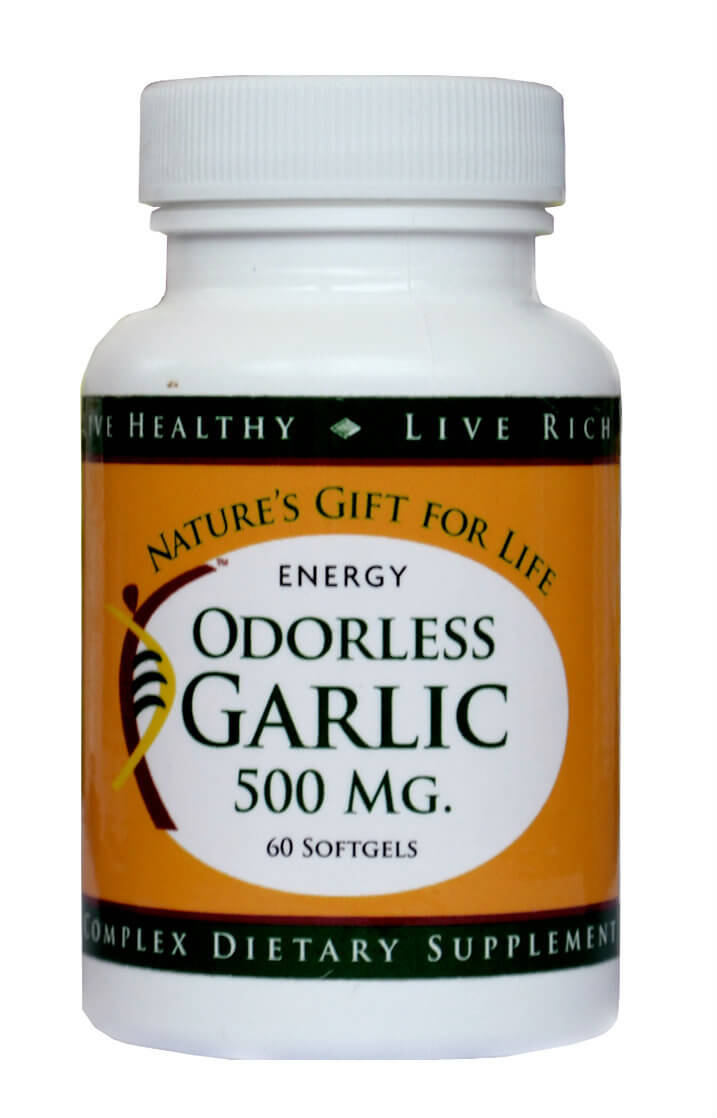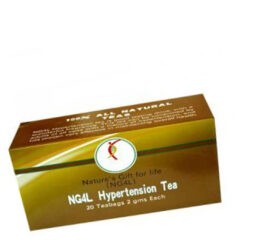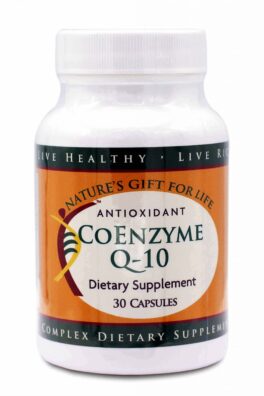Odorless Garlic (Hypertension)
Benefits of this product for Hypertension
- Has the ability to lower blood pressure
- A unique food for cardiovascular support, especially in terms of chronic degenerative cardiovascular conditions
- Helps prevent heart disease by lowering homocysteine levels
>>>Read More
10,160CFA
Garlic is a good natural food supplement with multiple benefits for the body, particularly for the cardiovascular system. It has been found to promote healthy triglyceride, LDL, and total cholesterol levels. It helps protect blood cells and blood vessels from inflammatory and oxidative stress.
Damage to blood vessel lining by highly reactive oxygen molecules is a key factor for increasing the risk of cardiovascular problems, including heart attack and atherosclerosis. Oxidative damage also leads to unwanted inflammation. The combination of unwanted inflammation and oxidative stress puts blood vessels at risk of plaque formation and clogging.
Garlic contains a unique set of sulfur-containing compounds that help prevent oxidative stress. Garlic’s 1, 2-vinyldithiin (1, 2-DT) and thiacremonone are the compounds that reduce inflammation by inhibiting the activity of inflammatory messenger molecules. In the case of thiacremonone, it inhibits the inflammatory transcription factor called NFkappaB. In the case of 1,2-DT, the exact antiinflammatory mechanisms are not yet clear, even though the release of inflammatory messaging molecules like interleukin 6 (IL-6) and interleukin 8 (IL-8) by macrophage cells has been shown to be reduced in white adipose tissue by 1,2-DT.
The combination of anti-inflammatory and anti-oxidative stress compounds in garlic makes it a unique food for cardiovascular support, especially in terms of chronic degenerative cardiovascular conditions like atherosclerosis. Garlic’s antioxidant effects are not only due to its sulfur compounds, but also to its vitamin C, selenium, and manganese content.
Vitamin C is the body’s primary antioxidant defender in all aqueous (water-soluble) areas, such as the bloodstream, where it protects LDL cholesterol from oxidation. Since it is the oxidized form of LDL cholesterol that initiates damage to blood vessel walls, reducing levels of oxidizing free radicals in the bloodstream can have a profound effect on preventing cardiovascular disease.
Manganese is a cofactor in a number of other important antioxidant defense enzymes, such as superoxide dismutase. HDL (good cholesterol) decreases in people with manganese deficiency. Selenium is an important part of our body’s antioxidant system and is a cofactor of glutathione peroxidase, one of the body’s most important internally produced antioxidant enzymes.
Selenium also works with vitamin E in a number of vital antioxidant systems. Natural anticoagulant. In addition to the ability of garlic to help prevent our blood vessels from becoming blocked, a disulfide in garlic called ajoene helps prevent clots from forming inside of our blood vessels. Ajoene can help prevent platelets aggregation.
Lowers blood pressure. Equally impressive is garlic’s ability to lower blood pressure. Researchers have known for about 10 years that the allicin made from alliin in garlic blocks the activity of angiotensin II. A small piece of protein (peptide), angiotensin II, helps our blood vessels contract. When they contract, our blood is forced to pass through a smaller space, and the pressure is increased. By blocking the activity of angiotensin II, allicin form garlic is able to help prevent excess contraction of our blood vessels and unwanted increases in blood pressure. More recent research has identified additional sulfur-containing compounds that are responsible for lowering blood pressure in a totally different way. Garlic’s polysulfides (in p lar (1,2-vinyldithiin (1,2-DT), and thiacremonone) are converted by our red blood cells into hydrogen sulfide gas (H2S), which can help dilate blood vessels and help keep blood pressure under control
Lowers homocystein levels. Garlic contains vitamin B6 that helps prevent heart disease by lowering homocysteine levels. Homocysteine is an intermediate product of an important cellular biochemical process called the methylation cycle and can directly damage blood vessels.
Supplements Facts | ||
Serving Size : One (1) softgel | ||
Amount per serving | % Daily Value | |
Concentrated Odorless Garlic Oil | 5 mg | * |
(equivalent to 500 mg of fresh garlic clove) | ||
*Daily Value not established | ||
Other ingredients: Soybeans oil, gelatin,glycerin,silica | ||
Cautions
Avoid garlic supplements before surgery because the herb’s anti-clotting actions may prolong bleeding from a surgical wound.
| Weight | 33 g |
|---|
Based on 0 reviews
Be the first to review “Odorless Garlic (Hypertension)” Cancel reply
Related products
-
Hypertension
Hypertension Tea (Hypertension)
0 out of 5(0)Benefits of this product for Hypertension
- Contain hypotensive (blood pressure-lowering) herbs including Hawthorn berries, which are high in proanthocyanidins (powerful antioxidant flavonoids).
- Helps in the treatment of essential hypertension
- Helps to prevent complications associated with high blood pressure
- Promotes the elimination of excess cholesterol by the liver
- Improves blood circulation
>>>Read More
SKU: n/a - Contain hypotensive (blood pressure-lowering) herbs including Hawthorn berries, which are high in proanthocyanidins (powerful antioxidant flavonoids).
-
Hypertension
Co-Enzyme Q10 (Hypertension)
0 out of 5(0)Benefits of this product for Hypertension
- Helps improve the function of blood vessel walls, thus contributing to the regulation of blood pressure
- CoQ-10 has been credited with saving many people from congestive heart failure when other drugs have failed
>>>Read More
SKU: n/a




There are no reviews yet.